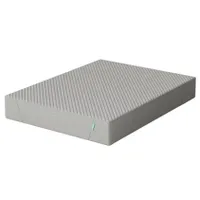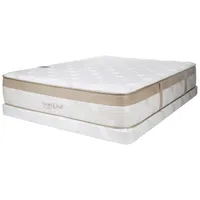This is how long a memory foam mattress lasts – and when to replace yours
We crunch the numbers on cheap and premium foam mattresses
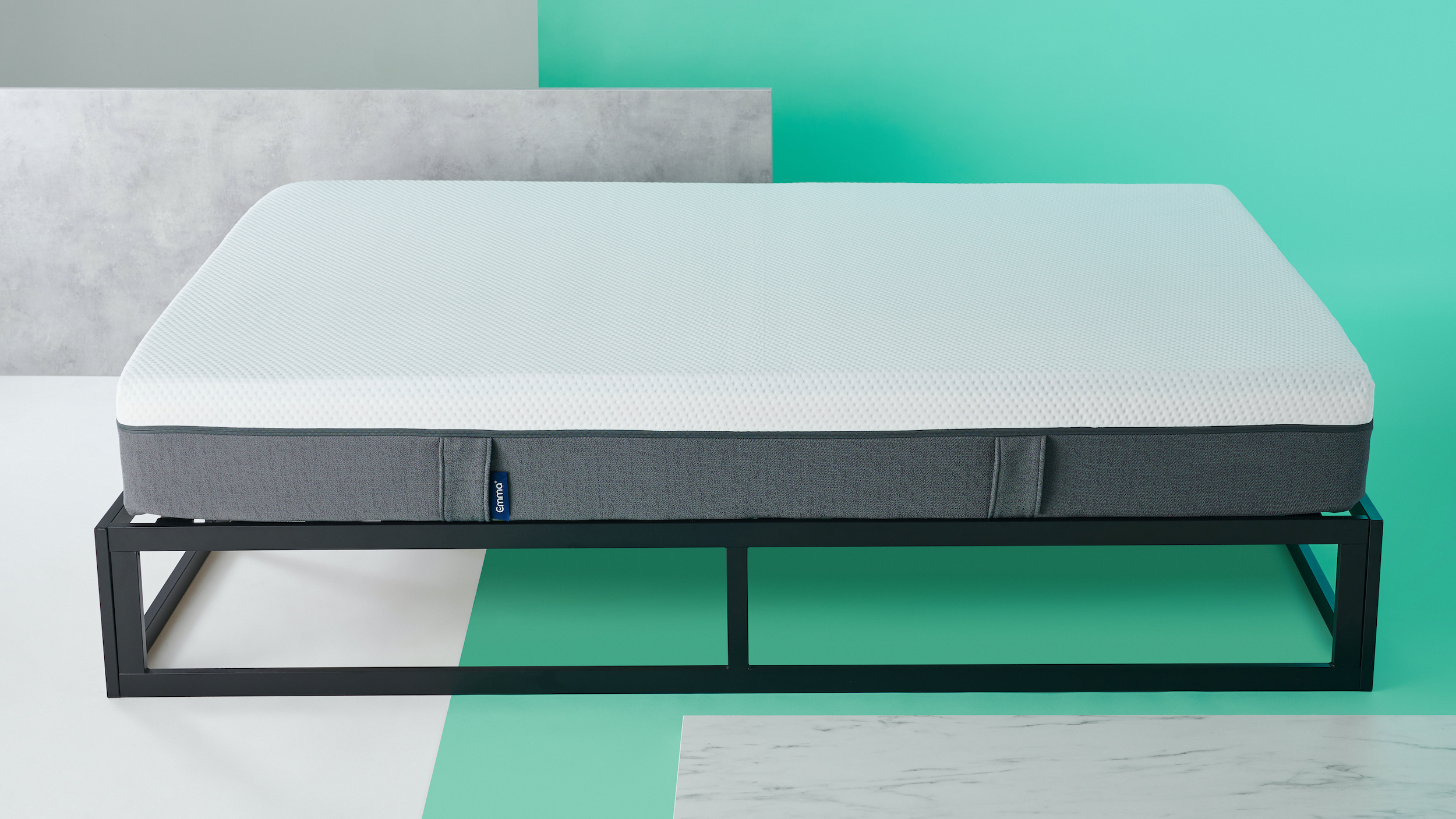
Memory foam is one of the most popular mattress materials, at least partly for its durability but mostly for its instant body-hug comfort. It suits pretty much all sleeping positions and body types, which is why you'll see so many all-foam mattresses in our best mattress guide.
But how long does a memory foam mattress last? And what affects their longevity? Firstly, it depends on what they’re made of – today's best memory foam mattress are designed to last a good long time, while if you opt for a cheap model, you'll probably find yourself replacing it sooner. In this article, we'll look at how long you can expect your memory foam mattress to last, and how to extend that lifespan so that you get the best value for your money.
What is a memory foam mattress?
Memory foam (also known as viscoelastic polyurethane foam) is a type of polyurethane foam. Developed by NASA in the 1960s to make safer aircraft seats, this synthetic foam has since been rolled out for use in a variety of consumer products from mattresses to slippers.
The name ‘memory foam’ was coined because the foam has the ability to temporarily hold the shape of something pressing into the foam. So, if you lie on a memory foam mattress and stand up again, you’ll see the shape of your body for a short while as the foam holds the ‘memory’ of your body.
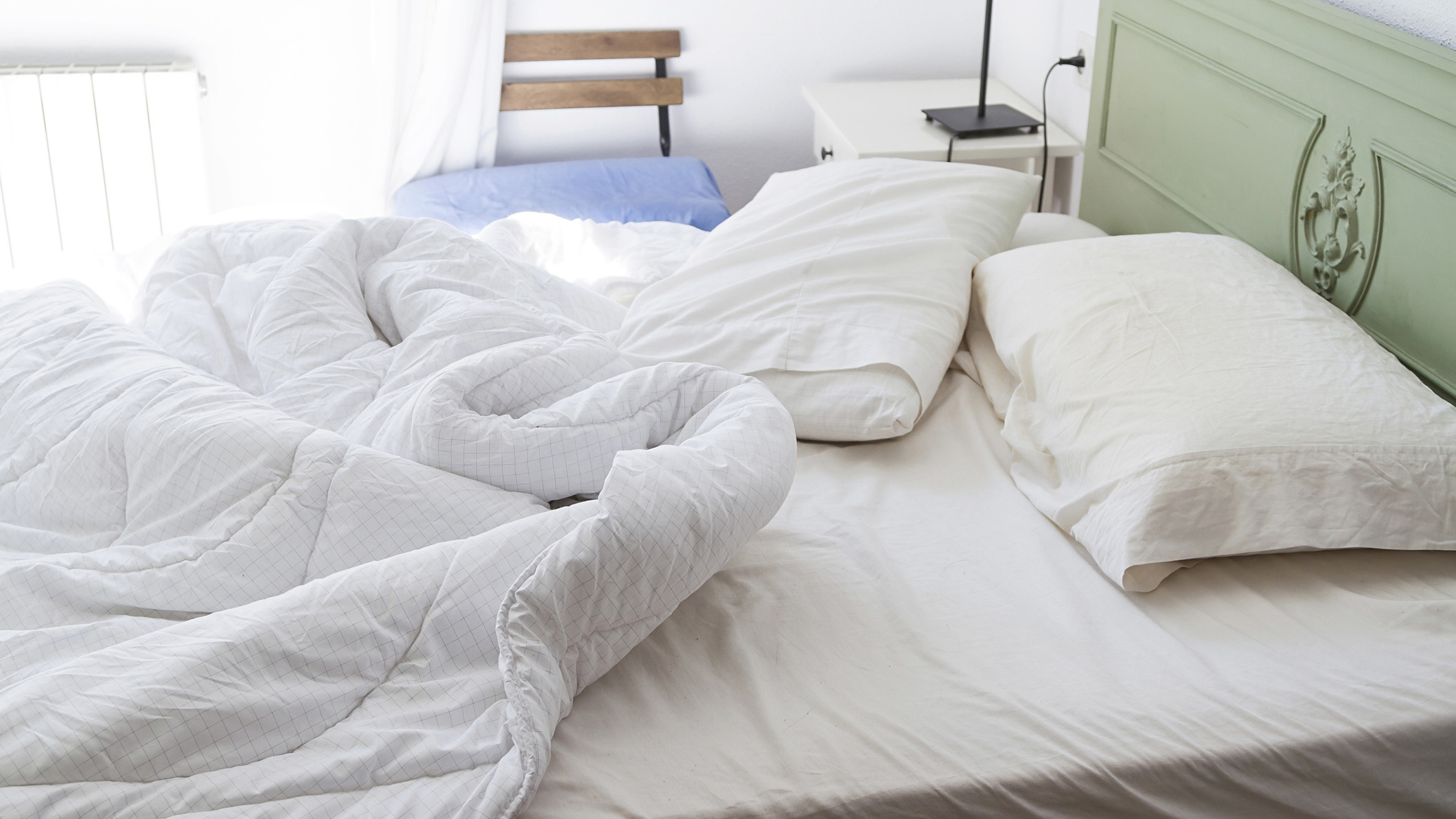
Because memory foam adapts itself more to the body as heat and pressure continue, these mattresses are famous for contouring and ‘hugging’ the body for excellent pressure relief.
In the case of memory foam, polyurethane is treated with certain chemicals to increase its density and viscosity, causing the material to react with your body heat and slowly adapt to your shape.
Interesting fact: memory foam isn’t a single material but a name for a wide group of similar foams. Depending on the brand and whether you go for a premium model or one of the best affordable mattresses, you'll come across memory foam with a number of different response times (how quickly or slowly they contour to you then later regain their shape), in various firmness ratings, and infused or cut in different ways to promote airflow.
Sign up for breaking news, reviews, opinion, top tech deals, and more.
Another option to consider when shopping for a mattress is a hybrid; these are generally made from a combination of memory foam and sprung layers, and can often be more durable (as well as being more appealing to anyone who's not so keen on the way you tend to sink into memory foam). Our article on memory foam vs hybrid mattresses can explain the differences and help you decide which is right for you.
How long do memory foam mattresses last?
A memory foam mattress lasts six to ten years on average before losing its shape and ability to contour to your body, but some can last 15 years or longer. Many factors affect longevity and dictate whether your mattress ends up at the shorter or longer end of that lifespan.
Good quality beds naturally last longer than cheaper models because they use more durable foams. The upside to this is enhanced sleep comfort for you, as you'll feel cooler and better supported.
In general, memory foam mattresses are among the most durable bed types and can last longer than hybrids because they're constructed from fewer components (such as coils) that are prone to faster deterioration.
How to determine memory foam longevity
There are other ways to gauge how long a memory foam mattress will last, and they include the following:
Density
When used in relation to memory foam, density is measured in pounds per cubic feet (PCF). Low PCF foams (less than 3.5 PCF) degrade faster than high PCF foams (over 5 PCF and the most long-lasting), so the more high-density foams used in your mattress, the longer it will last. These cost more, as high-density memory foam is expensive to make.

Indentation Load Deflection (ILD)
This scientific-sounding term refers to the foam's firmness, and it's usually tested by a heavy duty machine that compresses a sample of the foam to 25% of its original thickness (height).
A high ILD is usually found on firmer foams, whereas softer foams have a low ILD. Thicker layers of foam will also have a higher ILD as more pressure will be needed to compress them, so they'll withstand more wear and tear in years to come.
Layer thickness
While you might expect a thicker mattress to last longer than a thinner model, this isn't necessarily the case; you need to look at the composition of its layers to get a more reliable indicator of how long the mattress will last. Key to the durability of any mattress is the density and firmness of its support core, and beyond that there may be comfort and transition layers, with varying degrees of thickness, firmness and density. Pay attention to the makeup of the entire mattress and you'll have a better idea of its longevity.
Warranty
The length of warranty offered is a good indicator of how long you can expect your memory foam mattress to last – or at least how long you can expect some level of coverage for. Most warranties run for ten years, but there are lifetime warranties on all-foam mattresses from the likes of Saatva, Nectar, DreamCloud and Avocado.
What else affects memory foam longevity
You'll still need to air and rotate your mattress regularly, and always keep it covered with a good quality mattress protector to reduce sweat, body oils and spills seeping into the mattress as these can cause the foam to deteriorate faster. If you bounce or jump on your memory foam mattress, it will also sag and dip quicker.
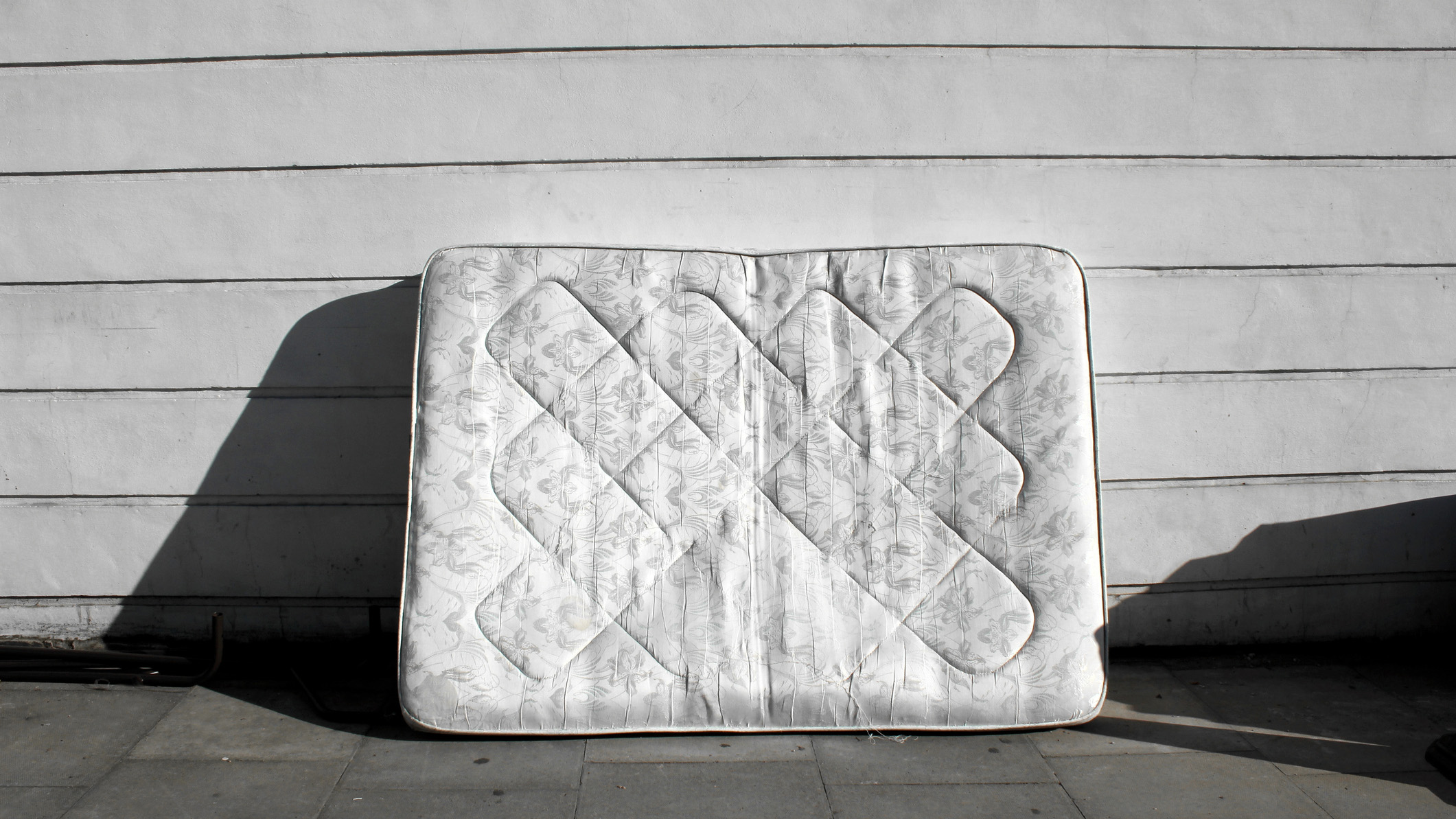
The bed frame you place it on can also cause premature sagging if you have a slatted base where the slats are too widely spaced apart - the foam will spill through, causing early sagging and physical discomfort to your spine because you won't be properly supported and aligned. Getting a supportive base is one way to fix a sagging mattress.
Mattresses naturally decay over the years regardless of their materials, and yellow stains on a mattress is a tell-tale sign of mattress old age.
How to make a memory foam mattress last longer
Clean it at least twice a year
All mattresses should be regularly cleaned, with removable covers being washed frequently and the mattress vacuumed to remove dust and debris. Learning how to clean a mattress properly will help your memory foam mattress to last longer, as it will be subjected to less sweat, oils, bacteria and other nasties that can infiltrate.
To boost your bed's longevity, aim to clean your foam mattress at least twice a year. If you spill food or drink on it (or vomit or urine gets on there), tackle that immediately with spot-cleaning to reduce deep-staining and damage to the material.
Give it a proper foundation to rest on
Make sure that your memory foam mattress is placed on a good quality, solid base. Check your mattress manufacturer’s guidelines, as some mattresses can only be used on specific bases. But in general, solid bases or slatted bases are fine. Make sure the slats aren't spaced too far otherwise your memory foam bed won't be properly supported and the material could get damaged.
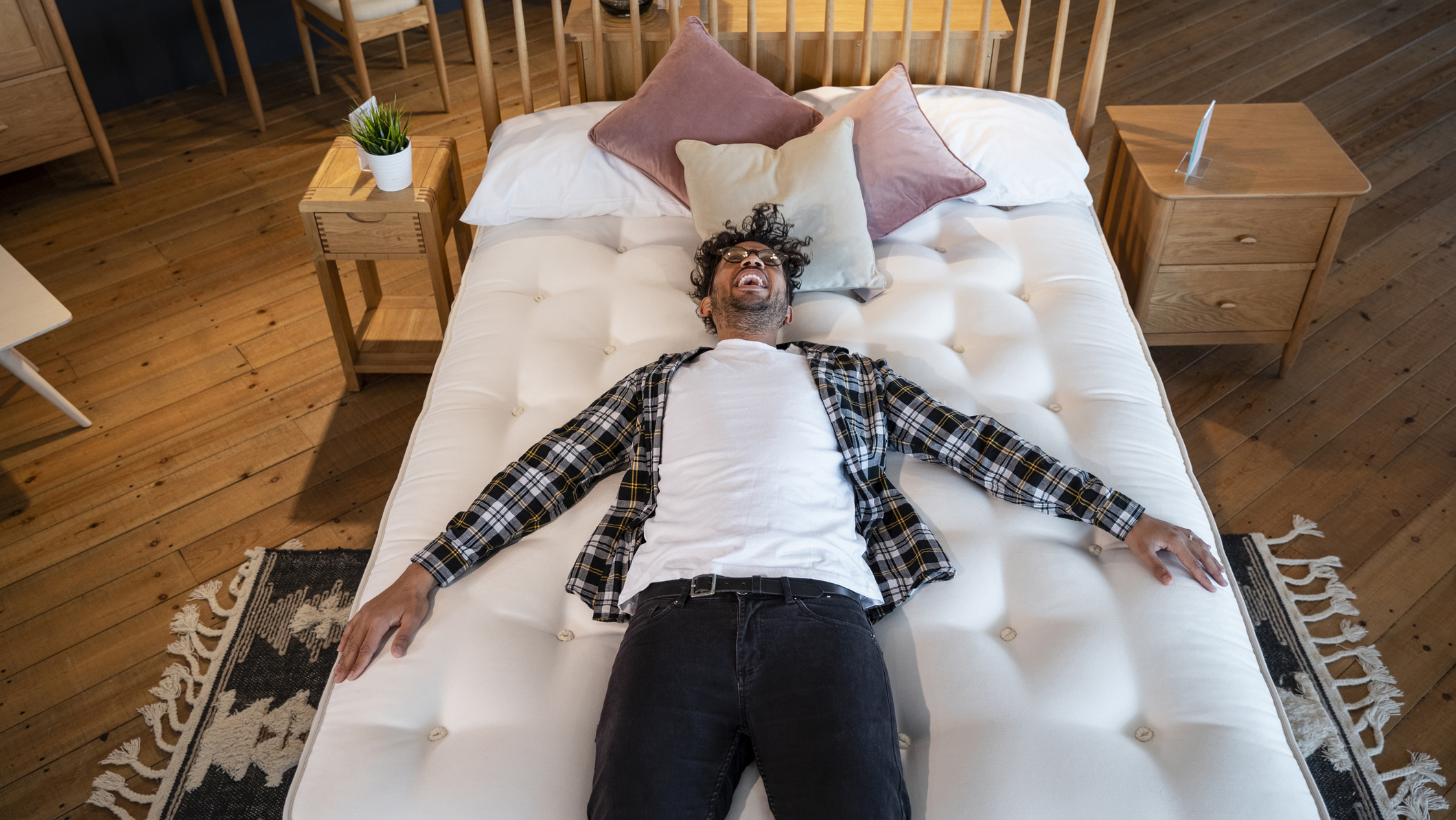
It’s vital to follow the manufacturer’s guidelines here as not using a supportive base not only damages a mattress, but it could also void your warranty. Improper support will cause sagging, indentations and loss of shape.
Rotate it every three months
Memory foam naturally softens over time, so it should be rotated regularly to spread out wear and tear. How often should you rotate a mattress? Every three months. Check that your mattress can be rotated though, as those with zoned support can't be. A few mattresses can also be flipped, but this is unusual with mattresses in a box, which are generally designed with a specific top and bottom.
Use a bed topper
These clever accessories absorb some of the natural wear and tear that happens to memory foam mattresses, helping them to last longer. They can also be used to add firmness or softness to an all-foam bed that's not quite to your comfort liking. For our expert recommendations, check out our guide to this year's best mattress toppers for all budgets.
Signs that your foam mattress needs replacing
There are certain telltale signs that mean your memory foam mattress needs replacing. While the average foam bed will last six years or longer, cheaper models or those that aren't properly cared for will show signs of replacement sooner. On the flipside, a well-cared for bed will take longer to display signs of wear.
But if three or more of the following issues resonate with you, its time to consider replacing your memory foam mattress:
- You're constantly waking up in pain or with stiffness
- Your body dips too far into the mattress to feel comfortable
- There's extensive sagging across the mattress
- Its now retaining too much heat, causing you to swelter in bed
- Its covered in stains and fabric rips (bacteria will love these)
Three popular foam mattresses to buy now
Siena Memory Foam Mattress: from $299 at Siena Sleep
If you’re on a budget, the Siena mattress belies its price tag. Made with gel memory foam, it provides excellent pressure relief for all side sleepers and lighter weight back sleepers. It’s also a great choice for those sharing a bed with a restless sleeper, as the motion isolation is excellent.
DreamCloud Luxury Hybrid: from $599 at DreamCloud
For a lot of people, a hybrid mattress that combines memory foam and pocket springs is the ideal combination. The DreamCloud Luxury Hybrid is a fantastically supportive mattress that provides excellent pressure relief – particularly for those suffering with back and neck pain. It’s also a great option for hot sleepers, will gel memory foam, coils that promote airflow and a breathable cover.
Saatva Loom & Leaf Mattress: from $964 at Saatva
This ultra-premium memory foam mattress from Saatva features a combination of 5lb memory foam and high-density foam layers for pressure relief and stable support, while ultra-breathable gel-infused foam will keep you cool at night while giving your lower back extra support. It's hand-crafted in the US from eco-friendly materials, it's delivered flat rather than stuffed into a box and it comes with a lifetime warranty.

Jo Plumridge is a freelance writer and photographer with over 20 years of experience writing for a variety of magazines, books and websites. She writes, perhaps unsurprisingly, about photography but also extensively on all things sleep and interior design related, alongside home and tech product reviews. She’s lived in the middle of a nature reserve in Botswana and written a guidebook to New Zealand, but now spends a lot of time trying to photograph the cats she and her husband foster for a local charity - without a doubt the most challenging subjects on earth!
